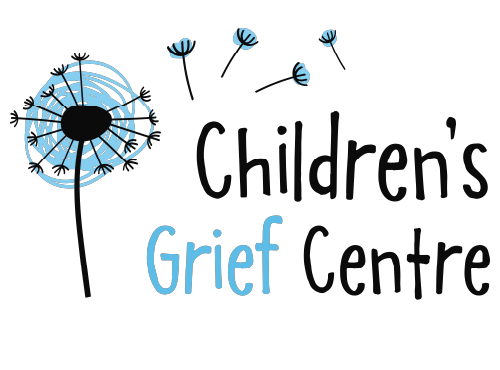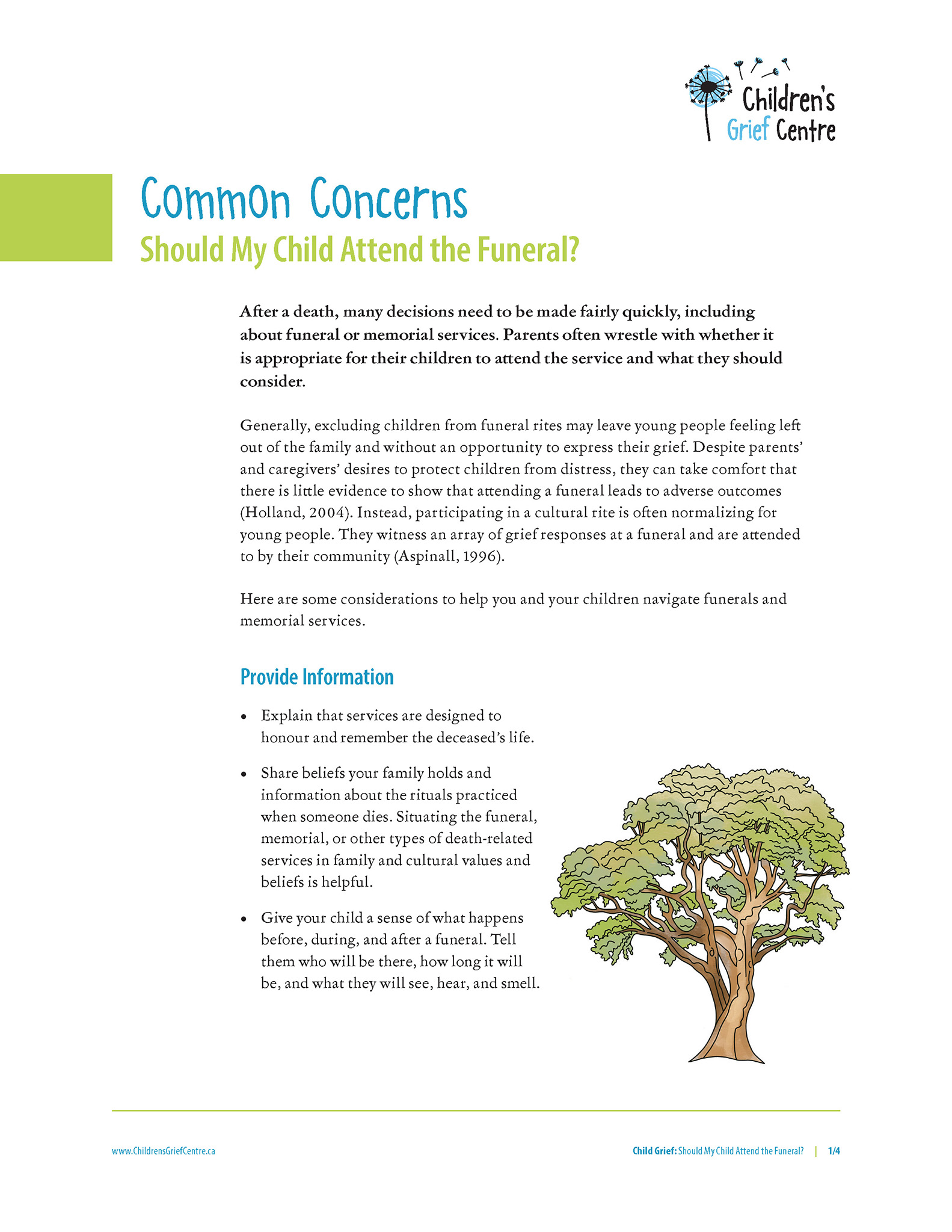Common Concerns
Should My Child Attend the Funeral?
After a death, many decisions need to be made fairly quickly, including about funeral or memorial services. Parents often wrestle with whether it is appropriate for their children to attend the service and what they should consider.
Generally, excluding children from funeral rites may leave young people feeling left out of the family and without an opportunity to express their grief. Despite parents’ and caregivers’ desires to protect children from distress, they can take comfort that there is little evidence to show that attending a funeral leads to adverse outcomes (Holland, 2004). Instead, participating in a cultural rite is often normalizing for young people. They witness an array of grief responses at a funeral and are attended to by their community (Aspinall, 1996).
Here are some considerations to help you and your children navigate funerals and memorial services.
Provide Information
- Explain that services are designed to honour and remember the deceased’s life.

- Share beliefs your family holds and information about the rituals practiced when someone dies.
- Situating the funeral, memorial, or other types of death-related services in family and cultural values and beliefs is helpful.
- Give your child a sense of what happens before, during, and after a funeral. Tell them who will be there, how long it will be, and what they will see, hear, and smell.
- Let them know that people will have many different emotions. They may experience and witness both tears and laughter as they hear stories and music or see photographs.
- If there is a reception following the service, let young people know that they may be approached with condolences. Help them with responses.
- Normalize the lighter and “feel good” aspects of the service. Many young people have shared that they enjoyed seeing extended family and friends at the service and having fun with cousins or friends.
Offer them the Choice to Attend or Not
Research indicates that children should be given a choice to attend a service.
- Having information about a funeral or memorial service will allow them to make an informed decision to attend or not.
- Provide an opportunity to ask questions and time to consider their choice.
- Let them know that this is not a one-time conversation and that they’re allowed to change their mind.
- As the funeral or memorial service is planned, keep them in the loop and invite them to participate.
Give your Child a Role
When children and teens can be involved in the service, they are likely to feel included in the family. The experience can also validate their relationship with the deceased.
- Invite them to share their ideas and opinion about different elements of the funeral or memorial services. These elements include the photos, slideshow, music, readings, and other aspects that will give personality to the service.
- Some families have a certain kind of food the deceased enjoyed at the reception. They might invite people to wear a specific colour or sports jersey or share a special memory in a book. Identifying and planning for these ways of honouring the deceased is another opportunity to include your child.
- The child’s age will help determine how much and in what ways they can be involved.
Body of the Deceased will be Present
- If there will be a viewing of the body, talk about how the person might look different than they remember.
- Provide a choice about viewing the body.
- Allow time for your child to prepare something if it is acceptable for them to put a note or memento in the casket.
Cremation
- Explain to children that the cremation occurs at a crematorium and that it will not be part of the service unless it’s culturally sanctioned.
- Use simple explanations to help children understand that cremation uses heat to change the body into small particles like coarse sand. Words like fire and burn can be frightening for children.
- Reassure them that the body doesn’t feel any pain.
- Talk about how the remains will be placed in a special container, called an urn, and the family can decide where to keep it.
Graveside Service
- Let children know if there is a graveside service that the casket will be placed in the ground, and this will be a place they can visit in the future.

Have a Backup Plan
- Explain to your child that at any time, they can change their mind about attending the service.
It can be helpful to designate a support person who is a little removed from the death who can be available to look after your child. - They can attend to them if your child becomes agitated and needs comfort or a break. Your child should know this person, and the individual should be able to soothe your child.
Consider Age and Stage
- No child is too young to attend a funeral, but they may need different support from you depending on their age. See the Child Grief resource for more information on grief and development.
Research Sources
Aspinall, S. Y. (1996). Educating children to cope with death: a preventive model. Psychology in Schools, 33, 341-349.
Holland, J. (2004). Should children attend their parent’s funerals? Pastoral Care, March, 10-14.
For more information, a consultation, or to seek support for your child, teen, and family, contact us at 403-263-4525 or info@childrensgriefcentre.ca.




